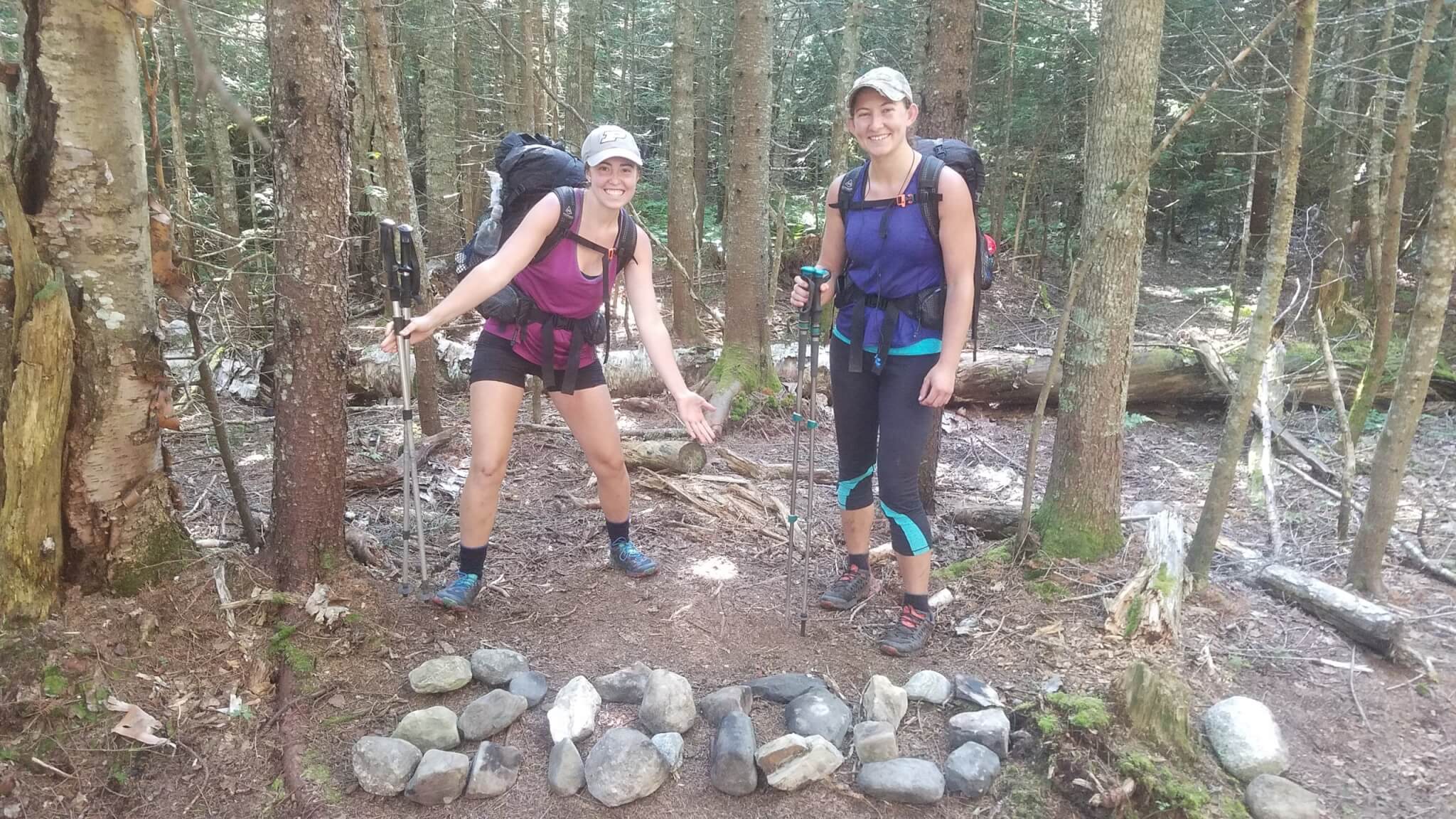Baleigh & Rebekah's Trail Tips
Trail Tip #1- Just Start Hiking
Rebekah says - It may rain for several days on end and you may be really cold in the morning, but you have to push through and just get moving. If you sit around all morning hoping to warm up, you are just going to stay cold all morning. It’s better to just start hiking.
Trail Tip #2 – Blisters Happen and 100% DEET is your friend
Baleigh shared that her two biggest challenges were blisters from soggy shoes, and mosquitoes. “We had a joke that when we got to camp I was known as bubble girl because we would set up tent and I would immediately just hide in the tent and I would barely unzip it to cook and then close it again. There were no mosquitoes when we first started and then the first of May hit and the next morning I woke up with over 70 bug bites on my legs and it was awful. 100 percent DEET became my best friend.”
Trail Tip #3 - Distractions/Rewards are Needed
Although being one with nature is part of the journey, both Baleigh and Rebekah brought entertainment along. For Baleigh, it was audio books. She listened to all of the Harry Potter series, but noticed that listening caused her to walk slower. “It became a problem when we were trying to make X amount of miles a day, but audio books helped me get going with the day. I didn’t listen to anything when I got to camp at night so it was my reward for getting up and going.”
Trail Tip #4 - Mental Toughness is Key
Both Baleigh and Rebekah got sick on the trail. For Baleigh it lasted a month and came right after a 10-day break in July when the pair came back to Indiana for a couple of weddings. For Rebekah, it came on the final two weeks of hiking through Maine.
Trail Tip #5 - Hike Your Own Hike
Baleigh says “Rebekah and I came together but we didn’t exactly hike our own hike. We were hiking each other’s hike. We learned that we weren’t the best hiking buddies and that’s due to the fact that she naturally walks faster than me, so she was able to get ahead and rest a long time and then do even more miles. It took me all day long to get to one spot. She would have liked to hike even faster. Maybe I would have walked slower or taken a bit more time to go and experience things like different touristy places, natural parks, monuments and things where some hikers got off trail and came back. It is all about what you want to get out of your experience.”
Trail Tip #6 – Watch Your Spending
“The biggest things when it comes to hikes, why people leave or don’t finish, is the fact that they get injured, they’re not enjoying it or they run out of money,” Baleigh noted. “You just have to be aware of how much time and money you are spending in a town. That’s where all of your money goes.”
Trail Tip #7 – Section Hiking
Many individuals don’t have the typical 5-7 months that hiking the entire trail can take. One option is to section hike the trail. This involves doing it in smaller pieces as time allows.
Trail Tip #8 – Leave No Trace
The hiking community is strong in conservation. One of the rules on the trail is leave no trace. Baleigh noted that despite seeing several hikers smoke, you never saw cigarette butts on the ground, but when you went to town there was trash everywhere. She wished that everyone participated in the practice of leaving no trace.
Trail Tip #9 – Find a Friend and Start Small
You don’t have to hike the entire Appalachian Trail to get involved in nature. Finding someone that has the same interests as you do and go out and do it. Start small – if you enjoy flowers, go out and spend time in your flower garden. If you don’t want to hike all day, just plan a day trip. Baleigh also recommends checking things off the National Parks lists. “With all of the units within the national parks, be that lakeshores or monuments or homesteads or whatnot, plan a trip, choose a destination and go do those things.”
Trail Tip #10 – It’s Your Land, Get Out and See It
The Appalachian Trail is on public lands the entire way up, save a few parts where hikers weave through private land on easements. Rebekah says “Being in wildlife has taught me a lot about conservation and how important public lands are. The cool thing about public land is that you own it; it’s your land. It is really important to take care of it and get outside and enjoy those lands. If not the Appalachian Trail, just go out hiking or birding or whatever you enjoy doing in nature. It is just important to get out and explore.”






